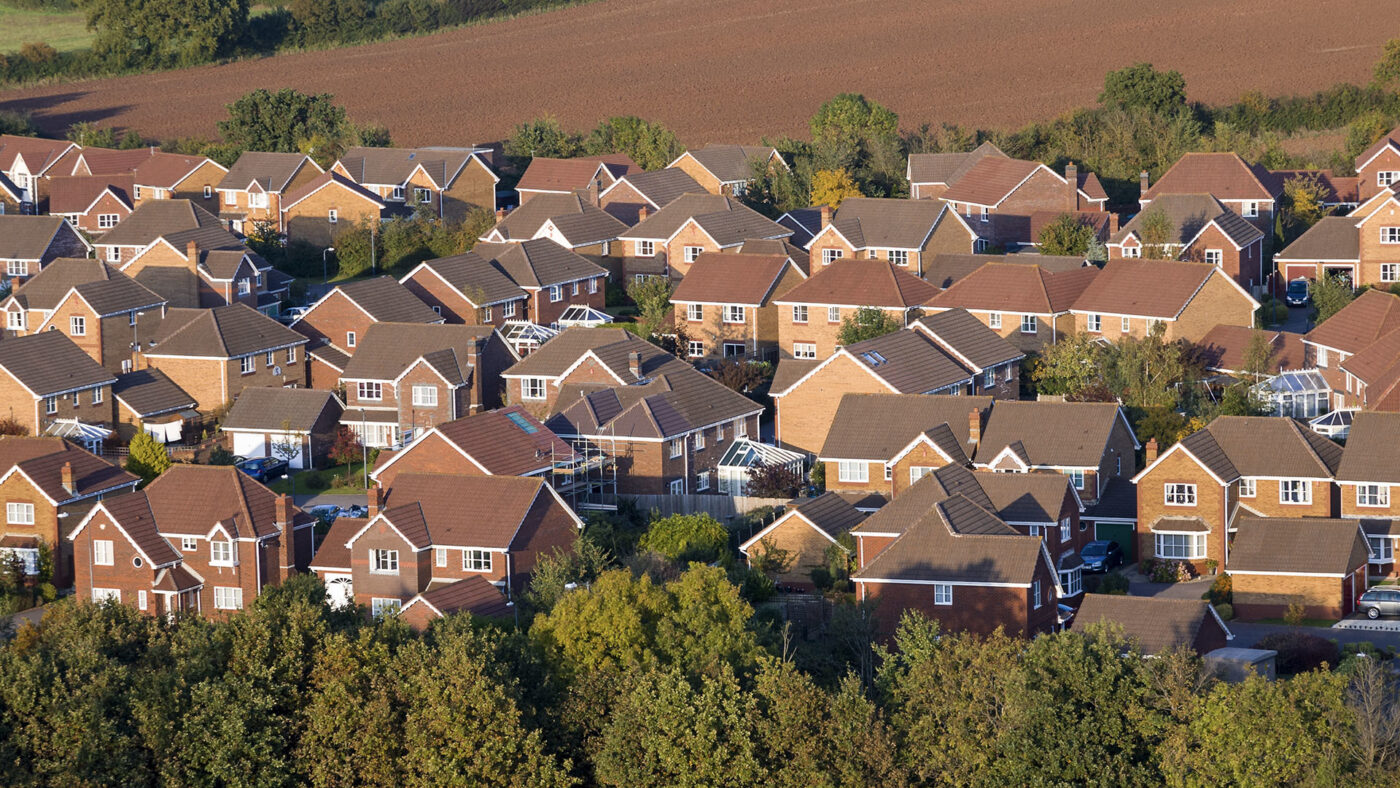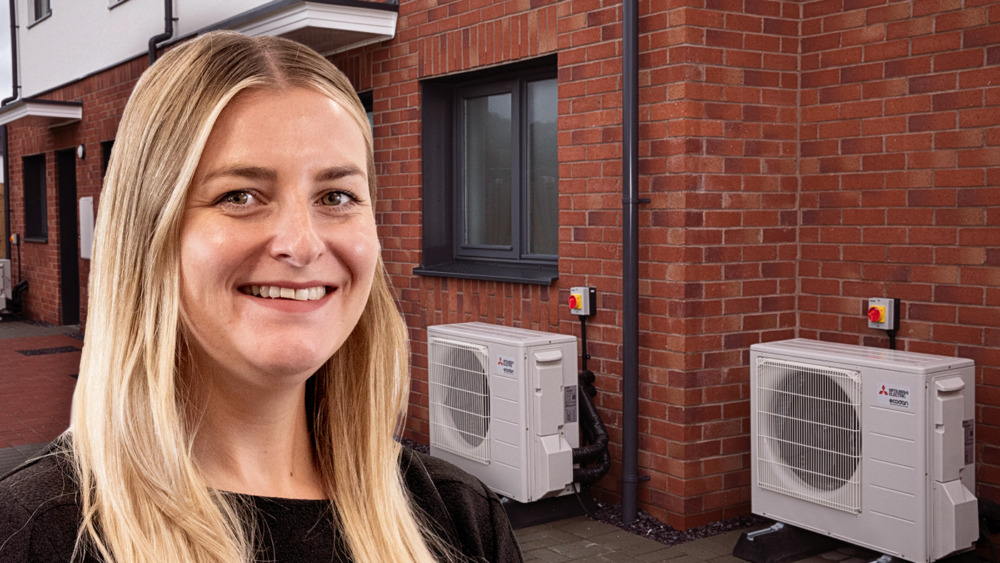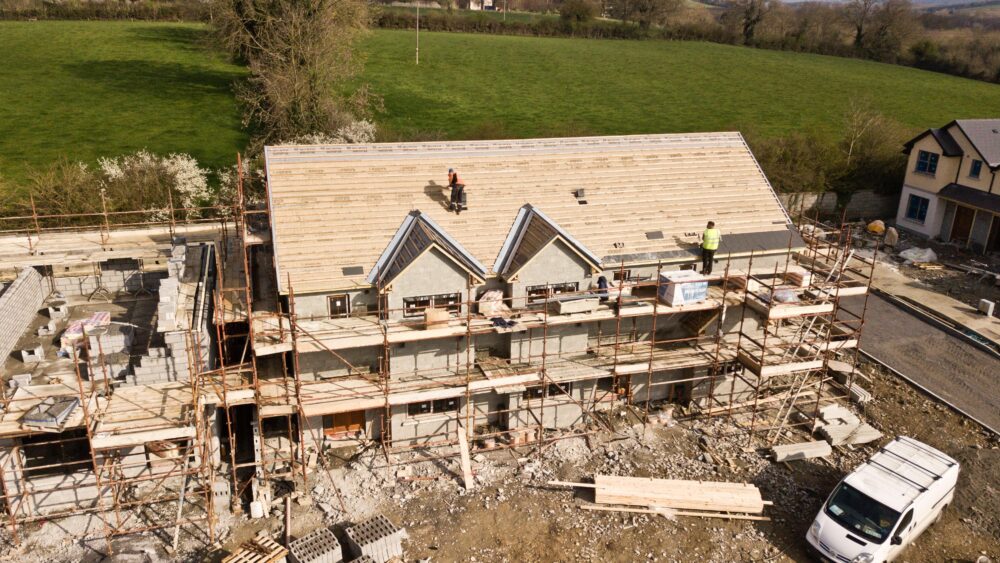Expert opinion: Welsh housing associations are adapting to build suitable homes for all - but could pressures close the door on progress?

In the second instalment of our development blog series, Bethany Howells, CHC policy and external affairs officer, looks at how housing associations across Wales are adapting their homes to meet the needs of different groups of people, including multi-generational families.
Here Bethany discusses the successful steps housing associations are taking, and the pressures within the system that could impact the delivery of this crucial goal.
Housing is not one-size-fits-all. What may work for one person, a couple or a family won’t necessarily suit another, for lots of different personal, cultural and health reasons.
People spend around 90% of their time indoors and, most importantly, at home. The impact that unsuitable housing can have on people’s lives has been well documented. The Covid-19 pandemic demonstrated how necessary good quality housing is for everyone, and in our 2021 Home! campaign manifesto we outlined the multitude of benefits that a warm, safe, affordable and suitable home can have.
On the other hand, cramped living conditions can harm family relationships, affect children’s education and cause anxiety, stress and depression - as shown in research published by homelessness charity Shelter. Overcrowding also negatively affects peoples’ health, with poor housing currently costing the NHS around £1.4bn per year.
A quarter of children living in social housing in England and Wales are living in overcrowded conditions, according to the 2011 census. Delving further into this census data, Deeds not Words supported by Tai Pawb reported that in Wales, 27% of Bangladesh, 19.4% of Black and 18.5% of Arab households are overcrowded, compared to 4.9% of White British households.
The Anti-Racism Wales Action Plan, published in 2022, now recognises that “culturally appropriate accommodation is necessary in order for individuals to flourish in other parts of their lives”.
Furthermore, the National Housing Federation (the body that represents housing associations in England) recently found that 313,244 children living in overcrowded homes are forced to share beds with family members, as part of wider research that reveals the detrimental impact of living in overcrowded homes.
Addressing overcrowding
Welsh Government has created extra funding streams - such as the 2021-22 funding programme for Larger Social Rented Homes, and the Transitional Accommodation Capital funding programme - that have been used by housing associations to help create much needed housing capacity and so address this issue.
To ensure they are providing the most suitable homes for people who need social housing in their local areas, housing associations work hard to understand the communities they serve, and ensure they can provide practical housing solutions that address individual circumstances.
In Cardiff, for example, Taff Housing Association provides housing options to areas with a diverse range of communities, and is actively improving some of the homes that it rents so that they are better suited to tenants’ needs. For example, this work has seen it convert eight attics in existing properties (in partnership with LoftPro) to create additional liveable areas and much-needed facilities, such as bathrooms and bedrooms, for multi-generational and larger families.
Excited to start a new project with @LoftPro. First step on the journey to help tackle overcrowding in our homes. This project is key to support community cohesion allowing residents to build long term relationships locally. Working with @cardiffcouncil @WelshGovernment pic.twitter.com/ZYByZjVKUo
— Taff Builds (@TaffHABuilds) June 13, 2022
These conversions have substantially benefited the community. Not only are they helping to reduce overcrowding and homelessness, this approach is also helping to address the shortfall of affordable housing in in the city.
A tenant who had recently benefited from the project highlighted the positive impact it has had on their own living conditions. They said: “We were sleeping literally on each other, but now everyone has their own space, and our children have much needed space to study and play.”
Other housing associations are also working to better understand the needs of their tenants. Cardiff Community Housing Association (CCHA) has carried out substantial work to improve its understanding of its ethnic minority tenants' experiences, and meet its strategic aim of being a caring landlord. For this association, this means making sure the organisation is inclusive, lived experiences are listened to, and tenants from a wide range of backgrounds are involved in decision making.
Future ambitions
However, while there is evidence of good practice within the sector, more needs to be done to overcome overcrowding in Wales.
Simon Lu, Anti Racism Manager at Tai Pawb, told Community Housing Cymru: “Overcrowding is a very poignant issue within housing for those from ethnically diverse communities.
“Unfortunately, data shows that little has changed in that regard since Wales made a commitment to tackle overcrowding in the 2002 Welsh Government BME Housing Action Plan.
“Although there are no easy solutions here, it is essential that now, more than ever, we act on it. Tai Pawb is looking forward to working with CHC, other partners, members and communities to make overcrowding a thing of the past.”
CHC and the housing association sector share Tai Pawb’s ambition. Alongside the work of the Expert Review Panel looking at homelessness legislative reform, and in partnership with Welsh Government and Welsh Local Government Association, we are commissioning focussed, detailed research into allocations (the process of how housing associations homes are assigned to prospective tenants) to help us understand the barriers people face when accessing housing options. Part of this work will also look at over occupation and under occupation of social properties.
We are additionally continuing to work with Welsh Government and other partners to find solutions to alleviate some of the challenges housing associations are facing when trying to build the homes in Wales people so desperately need. To support this, we are asking Welsh Government to consider how well local housing market assessments and Local Development Plans are working to deliver the homes that people from Black, Asian and ethnic minority communities in Wales need.
Finally, we know that affordability can be a driver of overcrowding so, as set out in our Time to Act report, we are continuing to call on UK Government to review welfare mechanisms that restrict household income, including the benefits cap.
Find out more about the work of Community Housing Cymru here and follow us on social media for the latest housing association news and views.





